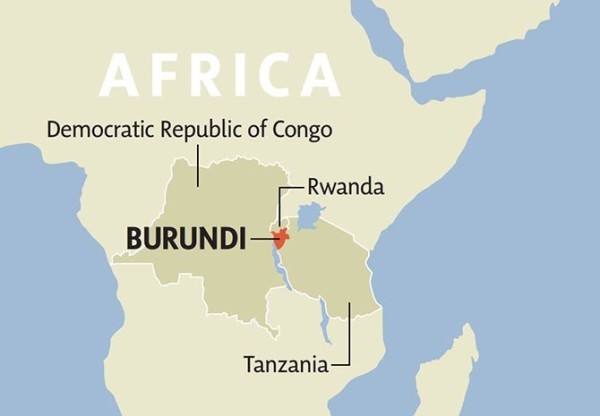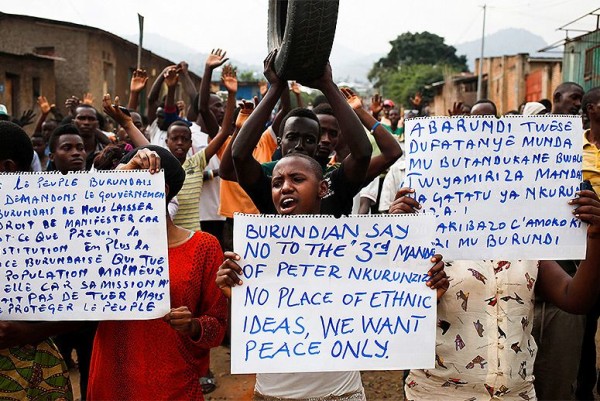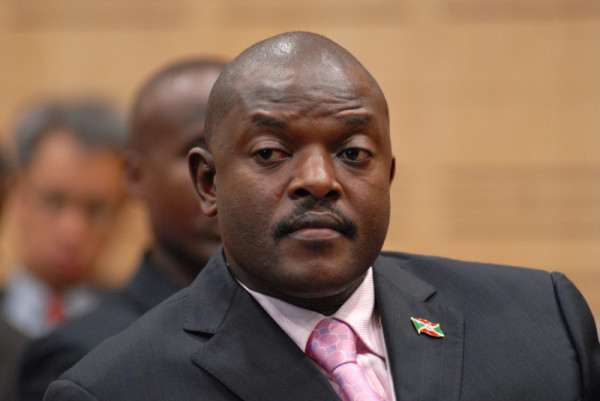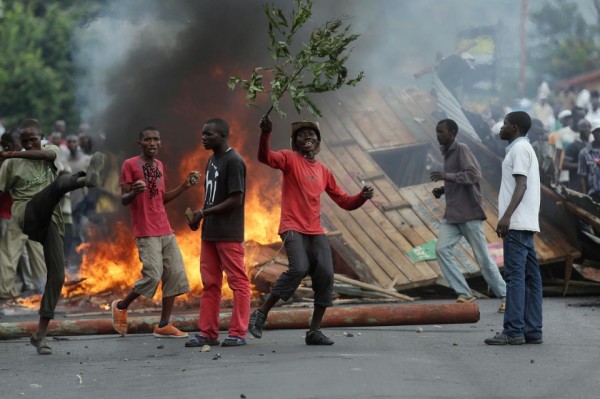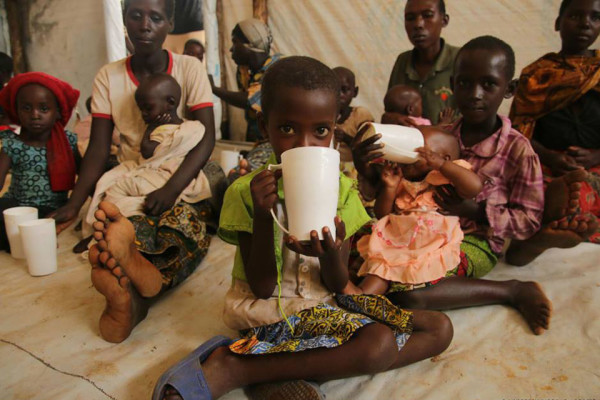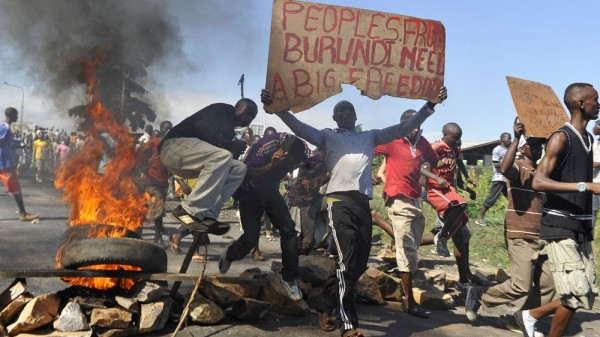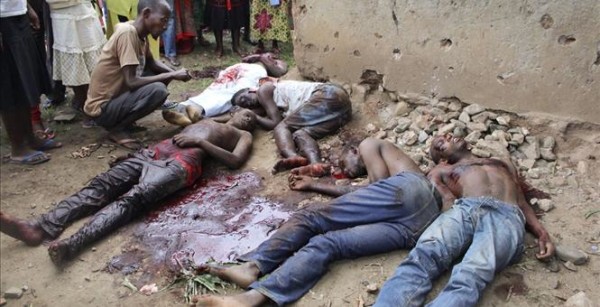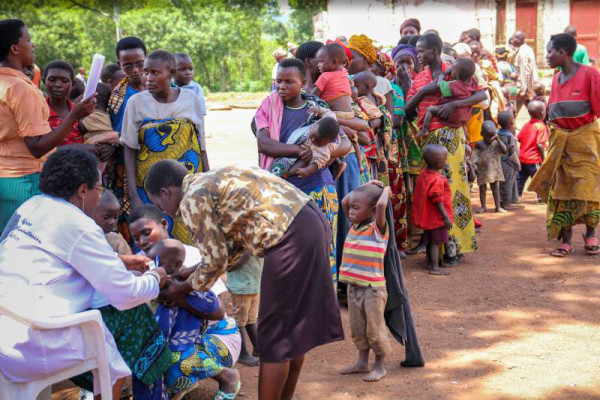
Already a poor country— the majority of the population lives under the poverty line—Burundi is on the verge of collapse if world leaders do not act immediately to avert the humanitarian disaster in waiting.
Burundi is a small, landlocked country in southeastern Africa. In April 2015, the country’s president, Pierre Nkurunziza, decided to run for a third term in office. This decision divided the nation. Opposition members said the current constitution of the country does not approve a third term for the Office of the President. Those who support Nkurunziza, also said Mr Nkurunziza is running for a second term in office and not a third, because his first term in office was not by elections, but by appointment.
More than 300,000 people were killed in a brutal 12-year civil war between the country’s two major ethnic groups, the Hutus and the Tutsis. Nkurunziza, a former rebel leader of the Hutu faction, was appointed to lead the country in 2005, which brought the war to an end.
Although opposition members have tried to use all means possible—including a coup d’état—to oust Nkurunziza, the President has been able to hold on to his rule of the country. In July 2015, Nkurunziza was elected to serve another five years in office. He won 69.41% of the valid votes cast.
However, since his election, the country has descended further into chaos. Citizens who do not support any of the warring factions, have become more vulnerable. According to estimates, the violence in the country has killed hundreds of people, prompting about 245,000 people to flee to neighboring countries.
The African Union announced that it will send some 5,000 peacekeepers to Burundi; however, the government of Burundi rejected the offer, saying it is capable of handling its own internal affairs.
But, despite the Burundian government insisting that all is well with the country—and that it is in control—independent observers in the country say the country is on the brink of collapse, and a huge humanitarian disaster is just around the corner.
According to the United Nations International Children’s Emergency Fund (UNICEF), serious matters are left unattended as a result of the current political turmoil in the country.
UNICEF said malnutrition, outbreaks of serious diseases, and other pressing issues are being faced within the country. UNICEF reported seeing double the amount of children from violence-affected areas suffering from severe acute malnutrition. In some schools, the organization discovered that the children are not being fed. Food crisis in Burundi is not something new, but the current chaos has worsened the situation. Women and children are among those who are most affected.
A UNICEF representative in Burundi, Bo Viktor Nylund, confirmed this to the Guardian. He said: “We’re seeing similar developments both in terms of increased reports of kids not having had anything to eat when they come to school, so not performing—and teachers not wanting them in school because they’re not able to concentrate—and also in terms of school materials and availability of resources for the government to actually run teacher training and so forth.”
The Guardian reports that more than 58% of Burundi’s healthcare system is reliant on external donors. The lack of funding has caused a crisis in the health sector. It is said that there is a shortage of basic medicines to treat basic diseases. Burundi is said to be lacking about $400 million, and without immediate intervention, the resulting humanitarian disaster will be huge.
According to the Take Part, in Tanzania, where more than 110,000 Burundians are currently seeking asylum because of the conflict, malaria and diarrhea have affected many of the refugee camps.
In addition, heavy rains and flooding are complicating matters. It is feared that a greater risk of overflowing sewage systems and flooded shelters, will bring more trouble to refugees. Already, some 33 refugees have died from the cholera outbreak at the refugee camps. Refugees who can no longer go through this hardship at the camps, are reportedly returning back to Burundi. And the returnees are said to be entering Burundi with diseases they contracted at the refugee camps in Tanzania. This is putting many lives in danger, due to the weak healthcare system in Burundi.
UNICEF is still working to facilitate humanitarian aid for children and families devastated by the conflict in the country. However, the organization is now sounding the alarm bell to all stakeholders of the world that a humanitarian disaster is in waiting somewhere.
“Even without any more violence, there will be a major crisis, so the time to invest is now—not when it’s too late. There’s no way that the people of Burundi can survive with all of this support being pulled out. I don’t have a crystal ball, but we’re definitely seeing scary things on the health horizon,” Nylund warned.
We are urging world leaders to act now to avoid what happened in Rwanda in 1994, when the world closed its eyes and about 800,000 people perished in roughly 100 days.
You want to support Anonymous Independent & Investigative News? Please, follow us on Twitter: Follow @AnonymousNewsHQ
This Article (Disaster In Waiting: Violence Is Threatening The Collapse Of One Of The Poorest Countries On Earth [Photos]) is free and open source. You have permission to republish this article under a Creative Commons license with attribution to the author and AnonHQ.com


